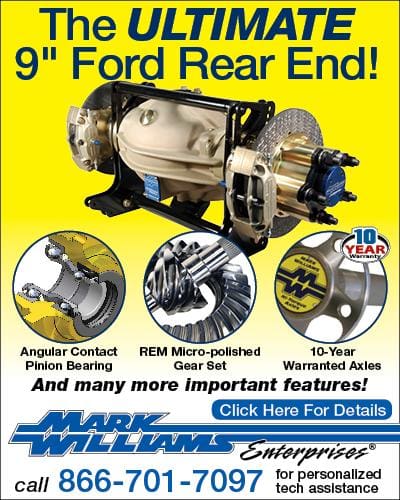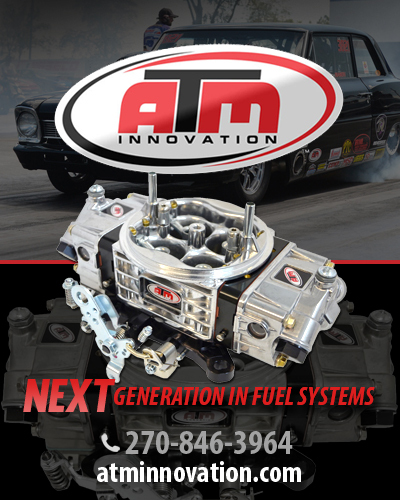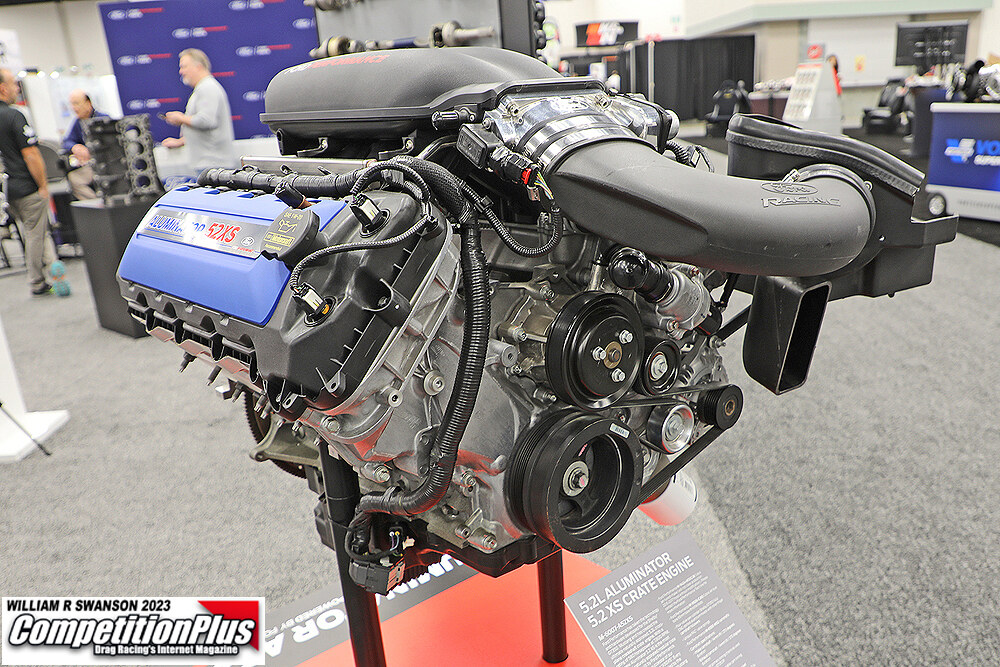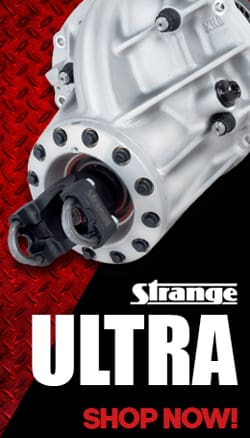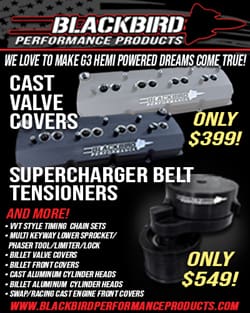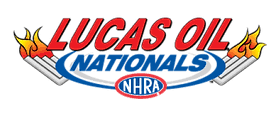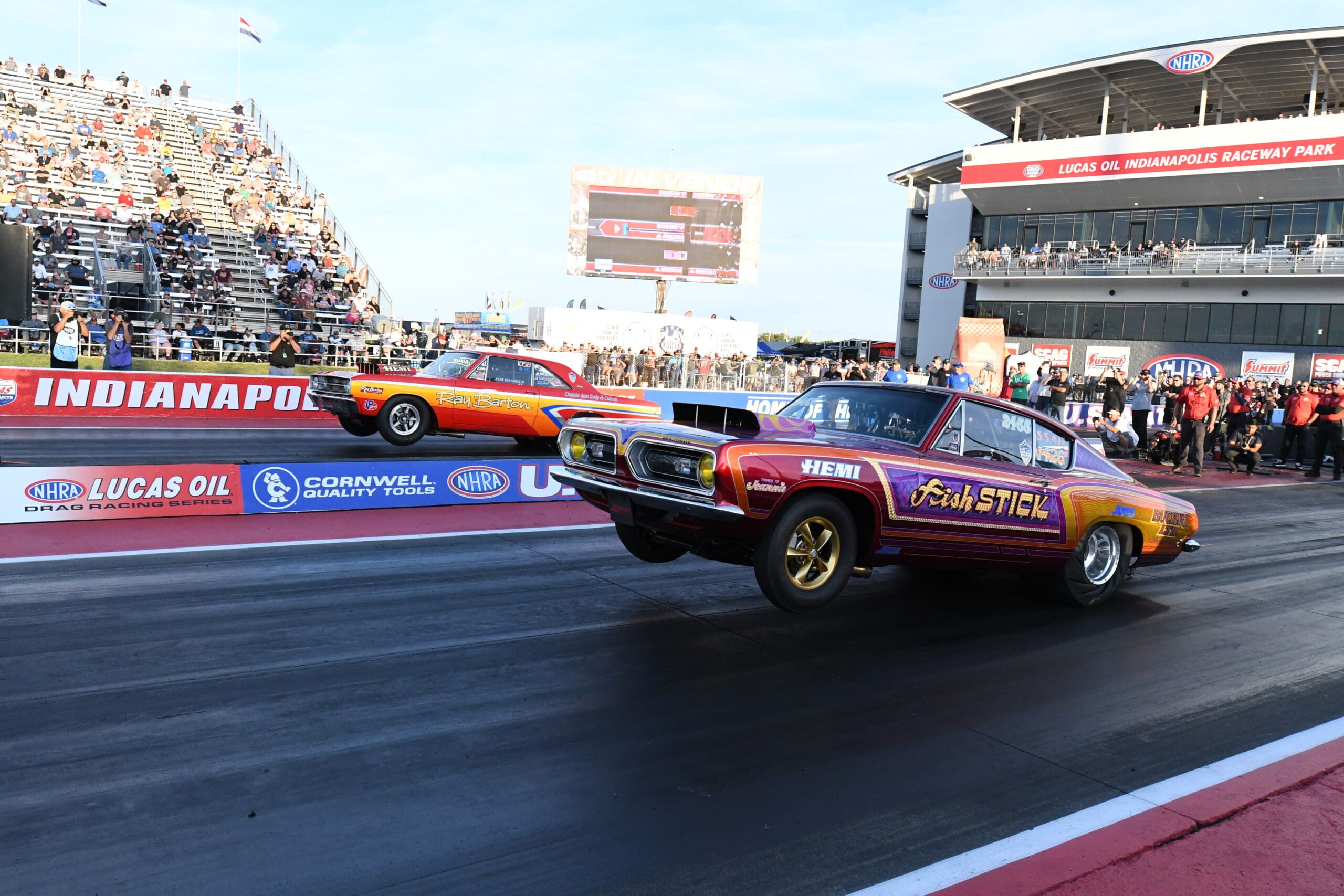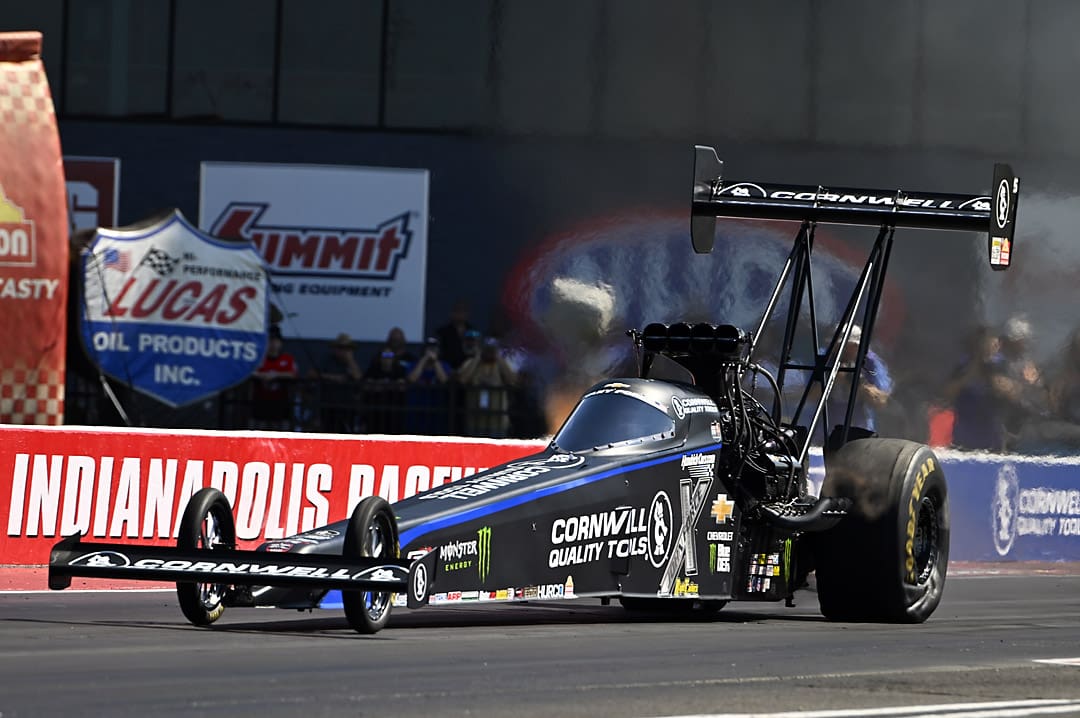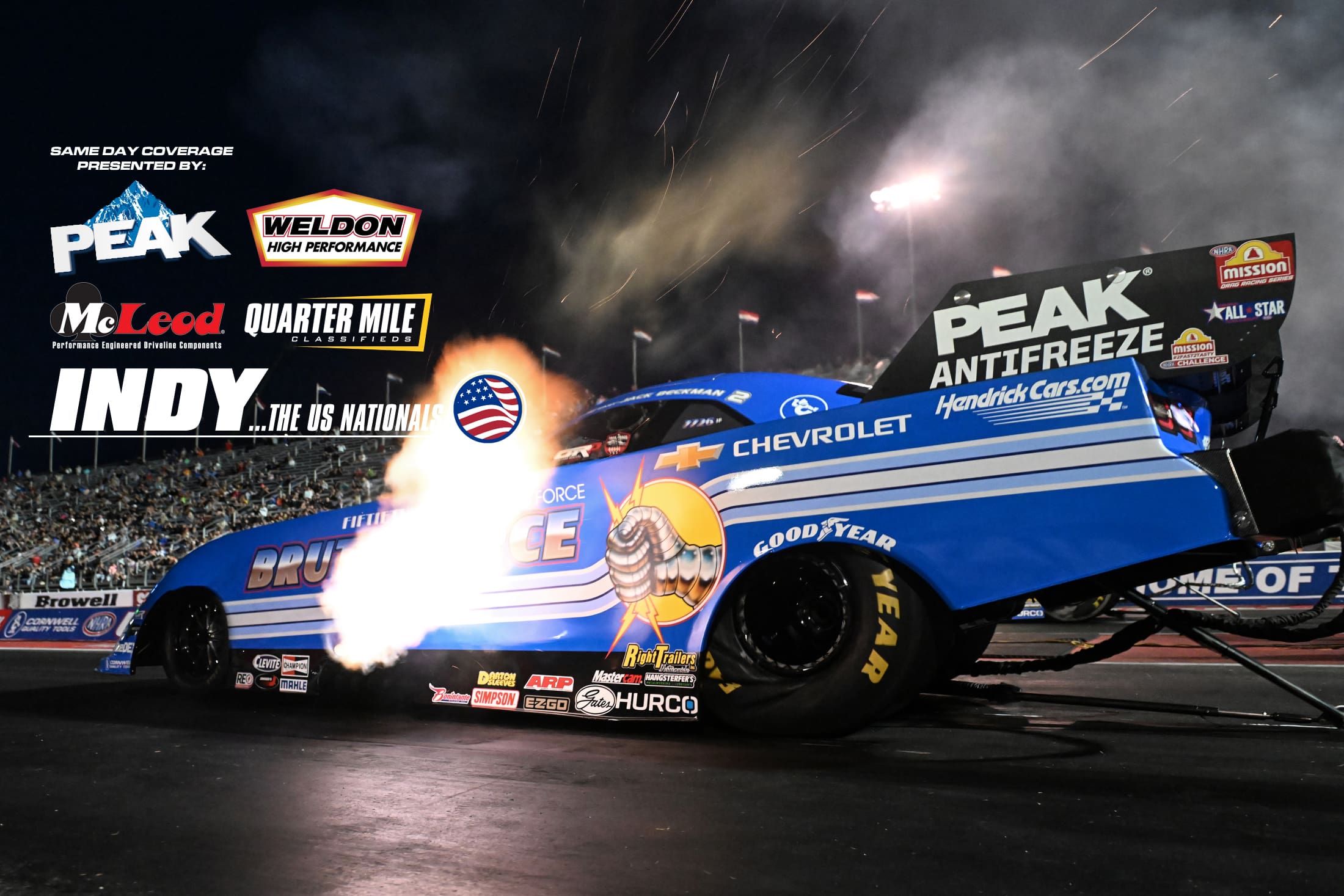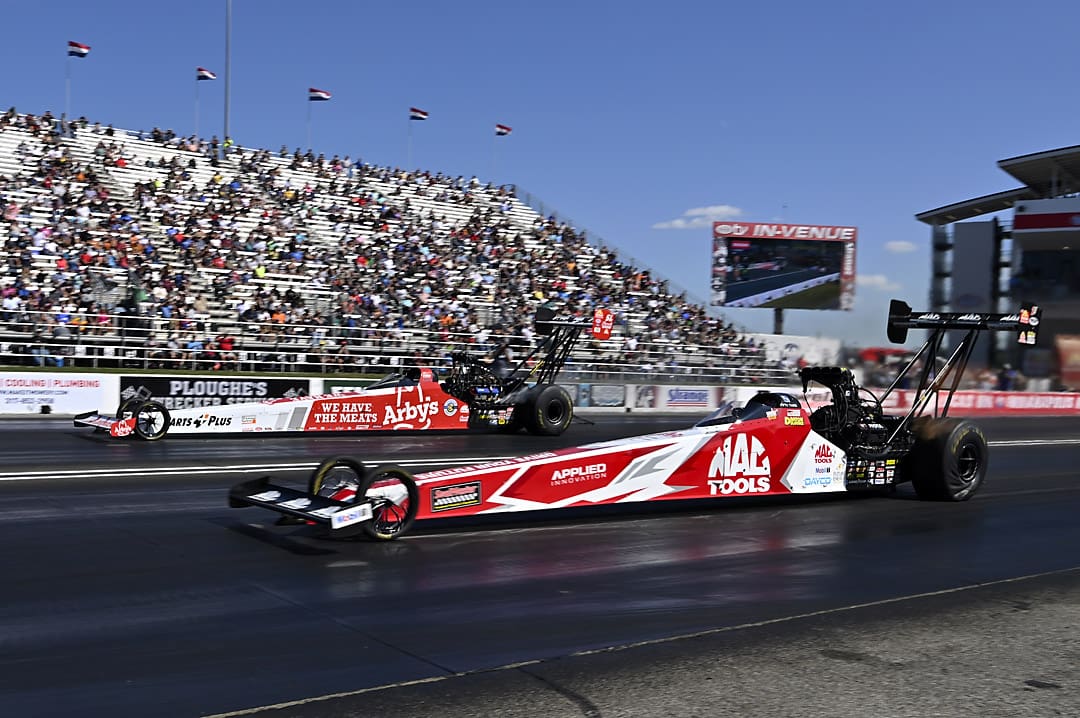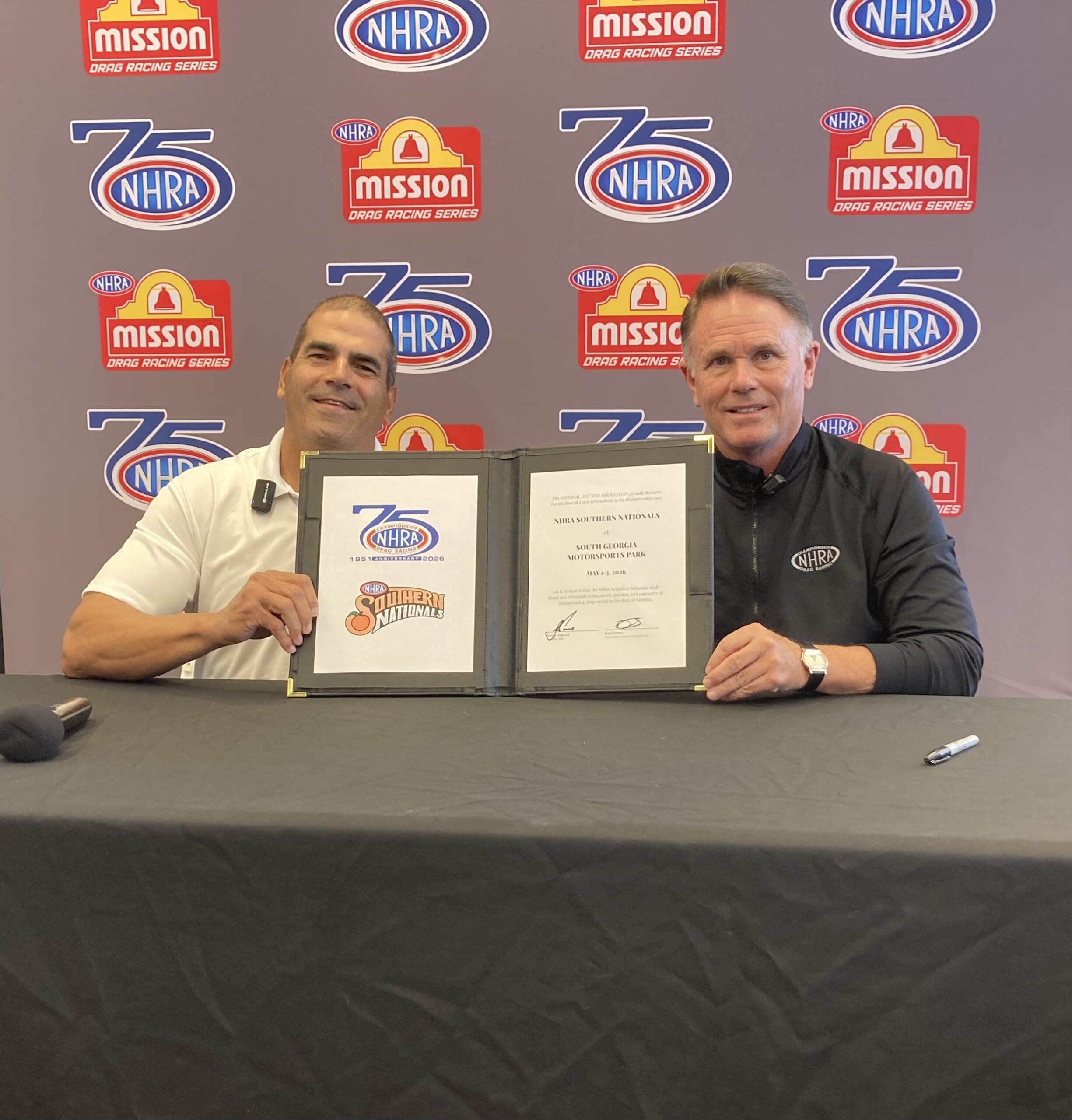
Originally published March 2010

It’s hard to picture it now because he’s been so big for so long, but even Kenny Bernstein was once a little guy like everybody else. He worked on the car, rode in the truck with the rest of the team, and once drove a truck by himself from Texas to Puyallup, Wash., to race, not knowing who was going to be there to help unload the car when he got there.
“Prudhomme, Force – probably anybody you can think of – started out that way,” Bernstein said. “People see what we have today and presume everything was handed to us. Trust me, it wasn’t. Almost all of us had nothing when we started except a love for the sport.”
Ever heard the one about how Bernstein got his original Budweiser deal by towing his car to Budweiser’s St. Louis headquarters and unloading it in the parking lot for employees to see on their way to work? It’s true.
It was 1979, and the Cajun Nationals had just been rained out. By the time Bernstein returned to Baton Rouge, La., for the rain date, the seed had been planted for a relationship that would grow to be the longest continuous sponsorship in the history of motorsports.
“I guess today it would be called a display, but I didn’t know what a display was back then,” Bernstein said. “I figured my only hope was to show the people at Budweiser that I wasn’t trying to get somebody to pay for my hobby. I’d already spent plenty of my own money, and I wanted them to see that this could really be something big.”

Bernstein would eventually win the IHRA Funny Car championship that year, but until then, his only claim to fame had been a final-round appearance six years earlier at the NHRA Winternationals. In the 1960s, he was just another Top Fuel driver from Texas. By the early ’70s, he had landed a ride Ray Alley’s Engine Masters Dodge Charger Funny Car.
Driving that car at the 1973 Winternationals, the future six-time NHRA world champ upset number 1 qualifier Butch Maas, eventual Springnationals winner Dave Beebe, and builder Al Bergler, running mid-7s at barely 200 mph under horrible conditions. In the final, Bernstein smoked the tires and lost to Don Schumacher, who claimed what would be the last win of his career.
Schumacher was out of racing by 1974 and stayed out until son Tony Schumacher’s Top Fuel career began in 1996. Bernstein was gone by the end of 1973, determined not to race again until he could afford to do it with his own equipment. He spent the mid-’70s building a chain restaurants called The Chelsea Street Pub with fellow racer Randy Pumphrey, and by 1978, there were 13 of them and Bernstein had the wherewithal to reenter the sport.
“I’d made enough money to get started and decided I’d give it one year,” Bernstein said. “I figured if I couldn’t find sponsorship, I’d just sell everything and go back into the restaurant business. I’d been up to St. Louis several times already, but I was never able to get anything going.”
Then came the meeting that changed everything. “I asked them to give me five more minutes,” Bernstein recalled. “I told them, ‘If I can’t convince you to do this in five minutes, I won’t bother you again for a year,’ and they agreed. I didn’t tell them what I had planned. They looked out the window, saw that big 18-wheeler, and saw what the car looked like. I ended up being there for a couple hours, and they got a good idea of what it could be like to have Budweiser on the side of a Funny Car. You sure can’t put it on a football or baseball player.”

It wasn’t some million-dollar deal. “That first money from St. Louis was $25,000,” Bernstein said. “The rest I got from wholesalers. I got 10 of them to put in $4,000 each, and the local region matched it. That was $80,000 – enough to run the car. The local wholesalers were the people I really went after. I did whatever I could do to help them sell beer, and they’d never had anybody do something like that before. They started calling St. Louis, telling them what I was doing. ‘Hey, this guy’s appearing at bars. He’s calling on customers.’ That set the trend for me: keep the wholesalers happy.
“In the restaurant business and in racing – in anything, really – I always tried to give the customer more than he was paying for,” Bernstein said. “The sport is completely different now, obviously. Look at how many people it takes to run one of these cars. Back then, it was just [crew chief and former driving great] Leroy Goldstein, a helper, and me. I did the clutch. It was tough, but I loved it.”
By the time Bernstein got back to Baton Rouge for the rescheduled Cajun Nationals, a foundation with Budweiser was established. Then, demonstrating the timing that has graced so much of his career, he won the race, taking the final over another driver hungry for the first of what would eventually be many, many NHRA titles: John Force.
Two years later, Dale Armstrong retired from driving to become Bernstein’s crew chief, and after some rocky initial outings, Bernstein was on his way to becoming the Kenny Bernstein everybody knows today. In 1983, he doubled up at the Big Bud Shootout (which he was instrumental in creating) and the U.S. Nationals. In 1984, he broke the 260-mph barrier and won the Gatornationals, and in 1985, he took the first of four consecutive NHRA Funny Car championships.
“The pressure wasn’t on you in those days because there wasn’t as much on the line,” Bernstein said. “There just weren’t the sponsorships that there are today. We were racing just because we loved to do it, battling each other every weekend. It’s probably not as fun today as it was in the ’80s, but I sure wouldn’t want to be doing anything else.”










